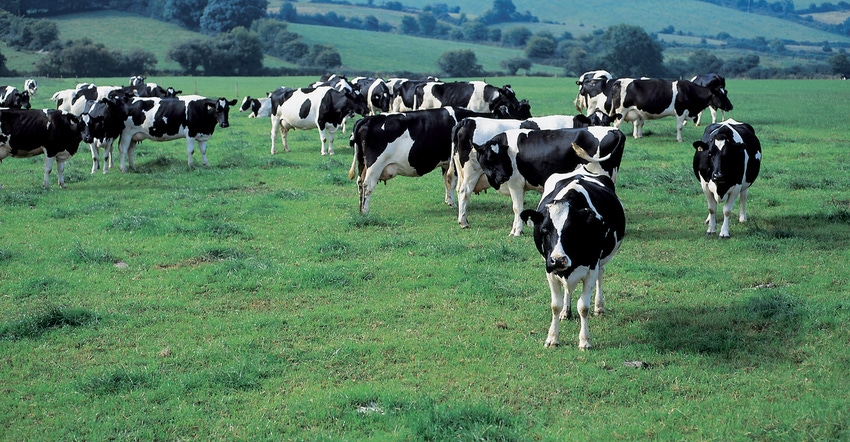March 6, 2020

Barry Bradford has been named the new Clinton E. Meadows endowed chair for dairy management in Michigan State University’s Department of Animal Science. He is replacing retired professor David Beede.
Previously at Kansas State University for 13 years, most recently as professor of animal sciences and industry, Bradford earned his bachelor’s degree from Iowa State University and his doctorate in animal nutrition from MSU.
“I did my Ph.D. here, actually right here [in Anthony Hall],” Bradford says. “I really enjoyed my time here. When this position opened up, some of my friends here talked to me about it, and I got excited about the opportunity to work with a bigger group of dairy-focused people and the strength of the overall research portfolio at MSU.”
 APPLYING RESEARCH: Barry Bradford's role is to take fundamental research, make it practical, and test it in controlled studies on commercial farms as an effective way to merge MSU Extension and research.
APPLYING RESEARCH: Barry Bradford's role is to take fundamental research, make it practical, and test it in controlled studies on commercial farms as an effective way to merge MSU Extension and research.

Bradford’s research expertise and leadership set him apart, Animal Science chair Pamela Ruegg says.
She says that Bradford established himself as a leader in dairy nutrition research with skills complementary to MSU’s current dairy nutrition scientists, which allows for more collaboration opportunities.
“We are very pleased to have Dr. Bradford returning to MSU in this position,” Ruegg says. “MSU has a long history of helping Michigan dairy farmers succeed, and advances in dairy nutrition are critical to ensuring animal welfare, reduced carbon footprint and enhanced nutritional characteristics. Dr. Bradford will be working to help us remain connected to our stakeholders and ensure that we are continuing to meet their needs.”
The Meadows endowed chair was founded in 1979 to “provide proactive leadership to the MSU dairy team and the dairy industry.” The role focuses equal time split between research and outreach. Bradford says he looks forward to combining those duties.
“As you’re out talking to producers, you’re getting ideas for new research projects,” he says. “It’s exciting to me that you can follow research all the way through to [its] application. Trying to come up with ways to take fundamental research we’ve done and make it practical, and test it in controlled studies on commercial farms, is an effective way to merge [MSU] Extension and research.”
Bradford's research at Kansas State focused on metabolic regulation of feed intake in dairy cattle, using alternative feedstuffs in dairy nutrition and transition cow health.
Bradford says through his leadership role, he hopes to build partnerships across departments to address dairy needs.
“We want as many people at MSU as possible engaged in solving problems for the dairy industry,” he says.
An industry-focused approach is what defines the Meadows endowed chair.
“This leadership position was established to ensure that our department has a strong commitment to dairy management,” Ruegg says. “Dr. Bradford will not only be working on his research projects, but will be responsible for coordinating our outreach efforts to the dairy industry and identifying areas of stakeholder needs. A primary role of this position is to maintain strong lines of communication with dairy farm families and leaders.”
Bradford grew up on a cattle farm in Iowa and became active in farming early in life.
“I am certainly humbled to be given the opportunity to step into this role,” he says. “There's a plaque [in the Anthony Hall lobby] and a proclamation from the state of Michigan dedicated to Clinton Meadows that I was looking at my first week here. It’s pretty neat to have the state legislature’s recognition in any field of academics. Then there's another plaque showing all the people who donated money to support the creation of this position, and it’s humbling to see all of the people who are behind [this effort].”
Meadows spent 23 years at MSU, earning the Distinguished Faculty Award and a proclamation from the Michigan Legislature in 1978. The chair position was named after him “to perpetuate his standards of excellence” in dairy cattle management, especially breeding management.
Source: MSU Extension, which is solely responsible for the information provided and is wholly owned by the source. Informa Business Media and all its subsidiaries are not responsible for any of the content contained in this information asset.
You May Also Like




